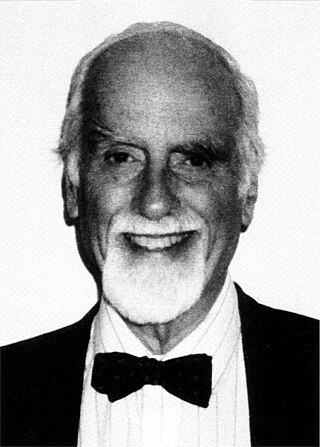Related Research Articles
Educational psychology is the branch of psychology concerned with the scientific study of human learning. The study of learning processes, from both cognitive and behavioral perspectives, allows researchers to understand individual differences in intelligence, cognitive development, affect, motivation, self-regulation, and self-concept, as well as their role in learning. The field of educational psychology relies heavily on quantitative methods, including testing and measurement, to enhance educational activities related to instructional design, classroom management, and assessment, which serve to facilitate learning processes in various educational settings across the lifespan.

Procrastination is the act of unnecessarily and voluntarily delaying or postponing something despite knowing that there will be negative consequences for doing so. It is a common human experience involving delays in everyday chores or even putting off important tasks such as attending an appointment, submitting a job report or academic assignment, or broaching a stressful issue with a partner. It is often perceived as a negative trait due to its hindering effect on one's productivity, associated with depression, low self-esteem, guilt, and feelings of inadequacy. However, it can also be considered a wise response to certain demands that could present risky or negative outcomes or require waiting for new information to arrive.

Elliot Aronson is an American psychologist who has carried out experiments on the theory of cognitive dissonance and invented the Jigsaw Classroom, a cooperative teaching technique that facilitates learning while reducing interethnic hostility and prejudice. In his 1972 social psychology textbook, The Social Animal, he stated Aronson's First Law: "People who do crazy things are not necessarily crazy", thus asserting the importance of situational factors in bizarre behavior. He is the only person in the 120-year history of the American Psychological Association to have won all three of its major awards: for writing, for teaching, and for research. In 2007, he received the William James Award for Lifetime Achievement from the Association for Psychological Science, in which he was cited as the scientist who "fundamentally changed the way we look at everyday life". A Review of General Psychology survey, published in 2002, ranked Aronson as the 78th most cited psychologist of the 20th century. He officially retired in 1994 but continues to teach and write.

Self-handicapping is a cognitive strategy by which people avoid effort in the hopes of keeping potential failure from hurting self-esteem. It was first theorized by Edward E. Jones and Steven Berglas, according to whom self-handicaps are obstacles created, or claimed, by the individual in anticipation of failing performance.
Goal theory is the label used in educational psychology to discuss research into motivation to learn. Goals of learning are thought to be a key factor influencing the level of a student's intrinsic motivation.
Cultural competence, also known as intercultural competence, is a range of cognitive, affective, behavioural, and linguistic skills that lead to effective and appropriate communication with people of other cultures. Intercultural or cross-cultural education are terms used for the training to achieve cultural competence.
Dale H. Schunk is an educational psychologist, former Dean and current professor in the School of Education at the University of North Carolina at Greensboro. He has researched the effects of social and instructional variables on cognition, learning, self-regulation and motivation. Schunk has served on the editorial boards of journals such as Contemporary Educational Psychology and Educational Psychology Review, and has authored many journal articles and book chapters on educational psychology. In addition to other books, he is author of the widely used textbook, Learning Theories: An Educational Perspective, and coauthor of Motivation in Education: Theory Research and Applications.

Edward Tory Higgins is the Stanley Schachter Professor of Psychology and Business, and Director of the Motivation Science Center at Columbia University. Higgins' research areas include motivation and cognition, judgment and decision-making, and social cognition. Most of his works focus on priming, self-discrepancy theory, and regulatory focus theory. He is also the author of Beyond Pleasure and Pain: How Motivation Works, and Focus: Use Different Ways of Seeing the World for Success and Influence.

Carol Susan Dweck is an American psychologist. She holds the Lewis and Virginia Eaton Professorship of Psychology at Stanford University. Dweck is known for her work on motivation and mindset. She was on the faculty at the University of Illinois, Harvard, and Columbia before joining the Stanford University faculty in 2004. She was named an Association for Psychological Science (APS) James McKeen Cattell Fellow in 2013, an APS Mentor Awardee in 2019, and an APS William James Fellow in 2020, and has been a member of the National Academy of Sciences since 2012.
A goal or objective is an idea of the future or desired result that a person or a group of people envision, plan and commit to achieve. People endeavour to reach goals within a finite time by setting deadlines.

Determination is a positive emotional feeling that promotes persevering towards a difficult goal in spite of obstacles. Determination occurs prior to goal attainment and serves to motivate behavior that will help achieve one's goal.

David Clarence McClelland was an American psychologist, noted for his work on motivation Need Theory. He published a number of works between the 1950s and the 1990s and developed new scoring systems for the Thematic Apperception Test (TAT) and its descendants. McClelland is credited with developing Achievement Motivation Theory, commonly referred to as "need for achievement" or n-achievement theory. A Review of General Psychology survey published in 2002, ranked McClelland as the 15th most cited psychologist of the 20th century.

Steven L. Neuberg is an experimental social psychologist whose research has contributed to topics pertaining to person perception, impression formation, stereotyping, prejudice, self-fulfilling prophecies, stereotype threat, and prosocial behavior. His research can be broadly characterized as exploring the ways motives and goals shape social thought processes; extending this approach, his later work employs the adaptationist logic of evolutionary psychology to inform the study of social cognition and social behavior. Neuberg has published over sixty scholarly articles and chapters, and has co-authored a multi-edition social psychology textbook with his colleagues Douglas Kenrick and Robert Cialdini.
Goal orientation, or achievement orientation, is an "individual disposition towards developing or validating one's ability in achievement settings". In general, an individual can be said to be mastery or performance oriented, based on whether one's goal is to develop one's ability or to demonstrate one's ability, respectively. A mastery orientation is also sometimes referred to as a learning orientation.
Defensive pessimism is a cognitive strategy in which an individual sets a low expectation for their performance, regardless of how well they have done in the past. Individuals use defensive pessimism as a strategy to prepare for anxiety-provoking events or performances. Defensive pessimists then think through specific negative events and setbacks that could adversely influence their goal pursuits. By envisioning possible negative outcomes, defensive pessimists can take action to avoid or prepare for them. Using this strategy, defensive pessimists can advantageously harness anxiety that might otherwise harm their performance.
David Amodio is an American scientist who examines the psychological and neural mechanisms underlying social behavior, with a focus on self-regulation and intergroup relations. Amodio is known for his role in developing the field of social neuroscience and for his neuroscientific approach to social psychology.
In social and developmental psychology, an individual's implicit theory of intelligence refers to his or her fundamental underlying beliefs regarding whether or not intelligence or abilities can change, developed by Carol Dweck and colleagues.
Frederick Rhodewalt was an American social psychologist at the University of Utah.

The self-worth theory of motivation, which is adapted from the original theory of achievement motivation, describes an individual's tendency to protect their sense of self-worth as the motive of avoiding failure and hence approaching success. Such theory commonly applies to students in the school context where frequent evaluation of one's ability and comparison between peers exist. A majority of students believe that being academically competent is a way of maintaining self-esteem, thus try to maximise their academic competence and avoid failure. The effort an individual puts in for the maximisation of academic competence to protect self-worth is often defined as a “double-edged sword”; while it is an essential factor of success, it can also result in feelings of worthlessness and incapability if one fails. To avoid the conclusion of incapability and hence maintain self-worth, some students choose to use defensive strategies such as putting in less effort and setting low standards towards the event of evaluation. These strategies, which support the maintenance of self-worth, are called self-handicapping and defensive pessimism respectively.

Reinhard Pekrun is a psychological scientist and educational researcher best known for his research on achievement emotions. He is a professor at the University of Essex, United Kingdom, and a professorial fellow at the Institute for Positive Psychology and Education, Australian Catholic University, Sydney.
References
- ↑ Elliot, Andrew J. “Award for Distinguished Scientific Early Career Contributions to Psychology” American Psychologist 56.11, 908-910
- ↑ Andrew Elliot Social Psychology Network
- ↑ Andrew Elliot Social Psychology Network
- ↑ "People—Andrew Elliot Department of Clinical and Social Sciences in Psychology". Archived from the original on 2014-07-14. Retrieved 2014-06-12.